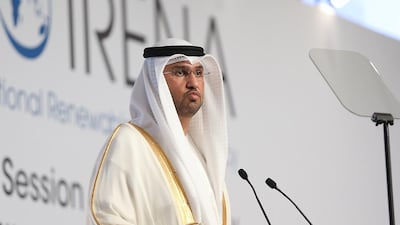Abu Dhabi National Oil Company (Adnoc) plans to extend its "mega tender" scheme, after the company's pilot tender halved the cost of a major steel purchase for its operating companies.
The new approach to procurement is part of Adnoc's broader push to streamline operations to bear down on costs in a world where oil prices are expected to recover only slowly from the crash of the past 18 months.
It is also part of a wider reform process in the region as governments push for a more rapid transformation away from a public-sector mentality to a more entrepreneurial approach, including using the massive buying power of incumbent state hydrocarbon companies to foster associated local industry, including steel and chemicals.
Kuwait Petroleum Corporation, for example, is following Adnoc’s example in combining and streamlining procurement for its operating companies and is in the process of its own first steel “mega tender”, according to industry sources.
Sultan Al Jaber, who was named Adnoc’s chief executive in February and last month to Abu Dhabi’s Supreme Petroleum Council, has made it clear that he plans to push through reforms and modernise an often lumbering and opaque oil-sector bureaucracy.
The new procurement process began in 2013 and the first tender was awarded last August. The details did not begin to surface until last month. The French steel products maker Vallourec, a public company listed in Paris, announced it had won a tender to supply 100,000 tonnes of oil country tubular goods (OCTG) to Adnoc’s three main operating companies: Adco, which oversees onshore oilfield operations, and Adma-Opco and Zadco, the main offshore operating consortiums.
Adnoc has in the past rarely shared such information about its operations but the new hierarchy is looking for a greater degree of transparency to help make its reforms stick.
Vallourec’s contract was, in fact, part of a much larger tender in which Adnoc contracted to buy 590,000 tonnes of OCTG from a number of producers.
The steel tender started out with a market valuation at slightly above US$2 billion but ended up costing half that amount, according to an Adnoc executive, who didn’t want to be named.
The largest share of the contract went to a unit of the Japanese engineering company Sumitomo, with the next-largest portion going to Italy-based Tenaris, followed by Vallourec’s 100,000 tonnes.
There were smaller portions, which included specialty as well as commodity products, awarded to five other companies: Tianjin Pipe and Hengyang of China, Russia’s TMK, JFE in Japan and Voestalpine of Austria.
The collapse in the oil price combined with the deep recession in the global steel industry played the greatest part in achieving the cost savings, but the tender approach also helped shave off millions of dollars, the Adnoc executive said. Also, the centralised buying, handled by Adma-Opco for this purchase, was recognised internally as a much more efficient way to make large procurements.
“This company puts out huge tenders every year and this [steel contract] wasn’t that big in the scheme of things, but it sets a tone,” said the Adnoc executive.
Adnoc is one of the biggest spenders in the region, particularly as it pursues its $25bn programme to increase onshore and offshore production to 3.5 million bpd by about 2018 from 2.8 million bpd in 2014.
There are also plans to expand the downstream sector in oil refining and petrochemicals.
After the success of the OCTG tender, Adnoc is looking to move again this year to capture further savings before oil and steel prices begin to turn up.
“We know they are willing in these market conditions to lock in long-term pricing for the commodities they buy – including, but not limited to, tubulars,” said Betrand de Rotalier, the regional head for Vallourec.
“We anticipate a new, similar tender to come in the second half of this year or early next year.”
Although Adnoc has not said so explicitly, it has relaxed the timetable for some of its largest projects, including the expansion of oil production as well as building a planned new refinery in Fujairah, partly to be able to achieve lower project costs.
“They are currently finalising their analysis in aligning production and drilling activity with capital and operating expenditures,” said Renwar Berzinji, the Middle East regional sales director at Tenaris.
“In view of the current market conditions, we appreciate what Adnoc is trying to do – to align the big picture with their operational requirements and optimise resources and improve operational efficiencies,” Mr Berzinji said.
The related goal is to tie Adnoc’s reforms to broader industrial policy by rewarding companies that meet other goals, such as local employment, with supply contracts. That is in its infancy but Abu Dhabi is watching how a similar scheme introduced by Aramco at the end of last year proceeds.
amcauley@thenational.ae
Follow The National's Business section on Twitter

